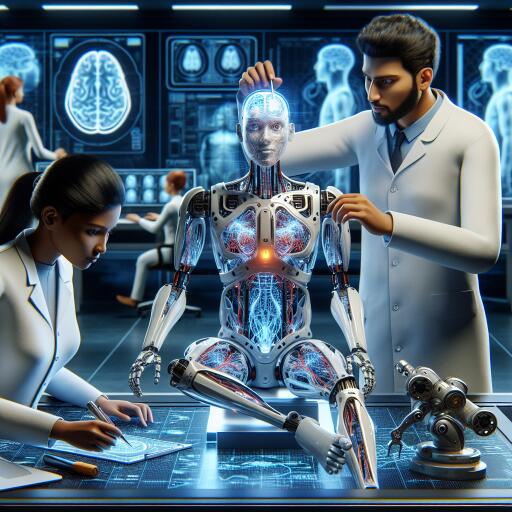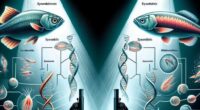Revolutionizing Robotics: Chinese Scientists Develop a Robot with a Human Brain
In an extraordinary leap towards blending the organic with the technological, a team of Chinese scientists has achieved a groundbreaking feat by developing a robot powered by a human brain—or, more accurately, a lab-grown brain organoid. This innovative creation marks a significant advancement in the field of robotics and brain-computer interface technology, bridging the gap between biological intelligence and artificial machinery.
The machine, often described as a “brain on a chip,” operates through a sophisticated synergy between a brain organoid and a computer chip. The organoid, a small mass of brain cells capable of mimicking certain functions of the human brain, works in conjunction with artificial intelligence algorithms and sensors. This allows the robot to perform tasks such as moving, grabbing objects, and navigating around obstacles autonomously, showcasing a rudimentary form of intelligence akin to that of humans.
The project, led by scientists at Tianjin University, utilizes advanced brain-computer interfaces (BCIs) to merge the organic brain’s electrical signals with the machine’s computational processes. This groundbreaking approach employs stem cells, which have the inherent capability to develop into brain tissue, integrating them with computer chips to create a new form of life that can process information and enact physical actions.
While the robot lacks visual capabilities, relying instead on electrical and sensory signals from the neurons for interaction with its surroundings, its development poses significant implications for the future of medical science and neurotechnology. According to the research team, the use of brain organoids in robotics could pave the way for innovative treatments for brain damage, including potential methods to repair the cerebral cortex and address various neurological disorders.
The concept of brain organoid transplants, as suggested by the study, represents a promising avenue for restoring brain function by replacing lost neurons and rebuilding neural circuits. This could have far-reaching benefits for patients suffering from a wide range of neurological conditions, offering new hope for recovery and rehabilitation.
However, despite these exciting possibilities, the technology is still in its nascent stages. The functionality of these brain organoids and their potential to fully replicate or restore brain tissue functions remains a subject of ongoing research and ethical debate. The scientific community continues to explore the limits and possibilities of integrating human brain cells with robotic technology, ensuring careful consideration of the moral and ethical implications of such advancements.
This remarkable achievement not only pushes the boundaries of what’s possible within robotics and biomedical science but also raises important questions about the future relationship between humans and machines. As researchers further refine this technology, we may soon find ourselves on the precipice of a new era where biological intelligence and artificial intelligence not only coexist but complement and enhance each other in ways we are only beginning to imagine.
In conclusion, the development of a robot powered by a human brain organoid marks a significant milestone in the quest to merge biological and artificial intelligence. While the road ahead is filled with challenges and uncertainties, the potential benefits for both technology and medicine are vast, promising a future where such integrations could revolutionize the way we live, work, and heal.










